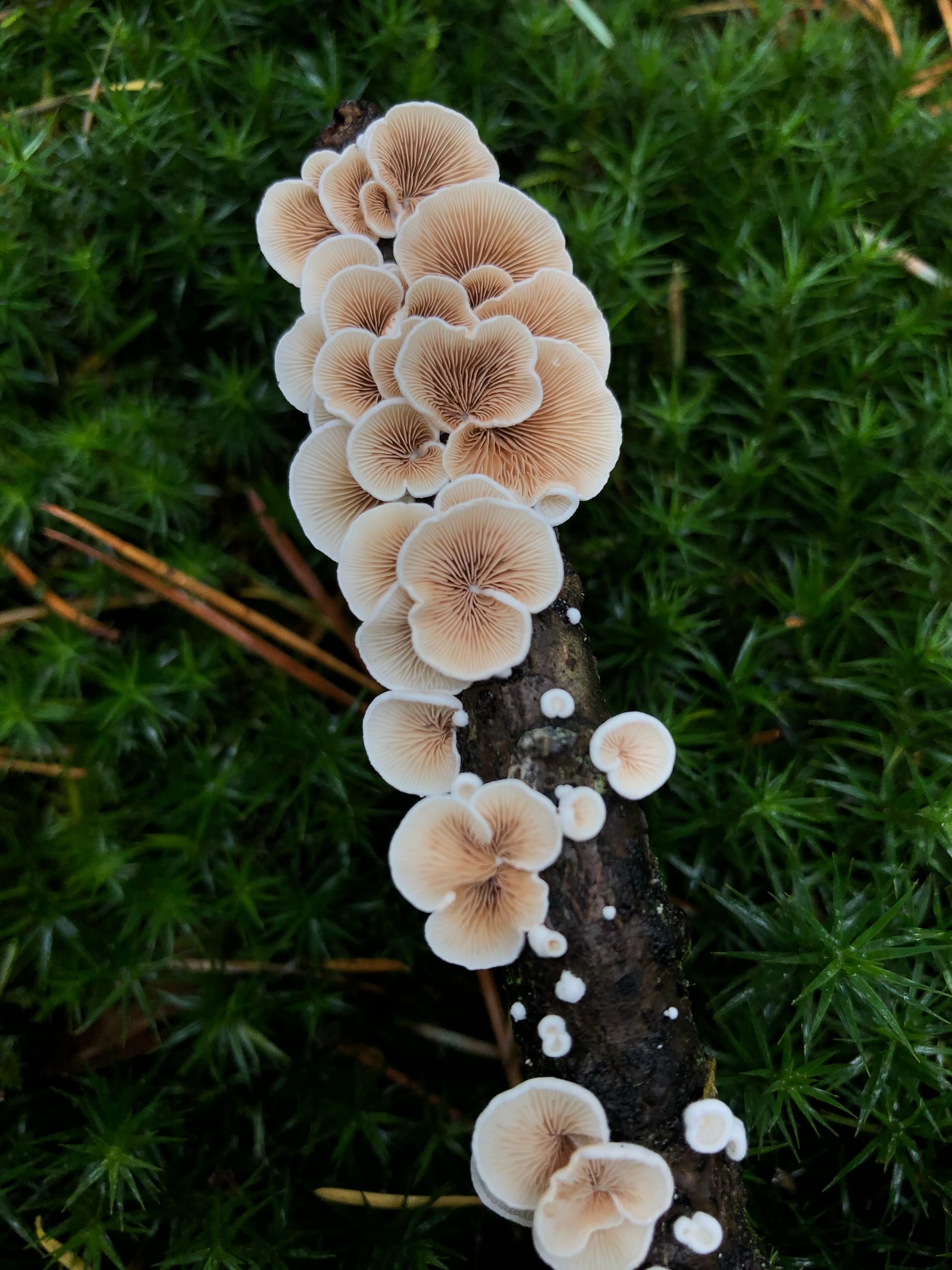The edible mushrooms have numerous health benefits, some even serve as a remedy for the common cold! People have been consuming mushrooms for thousands of years due to different beliefs in their nutritional advantages. For example, the ancient Greeks thought that mushrooms were able to provide strength for warriors in battle; or the Romans, who believed them to be the “Food of the Gods.” In the Chinese culture, people also had similar beliefs, perceiving mushrooms as an “elixir of life.” All in all, these amazing and weird vegetables have been part of the human culture for thousands of years, and today we are going to tell you the reason!
Edible Mushrooms—The Ancient Remedy
Their long history as food source for humans is due to the mushrooms’ healing abilities in multicultural traditional medicine. Nowadays, even according to some studies, these vegetables really do seem to inhibit beneficial effects for health and treatment of some diseases. Mushrooms have many nutraceutical properties, like prevention or treatment of Alzheimer, Parkinson, hypertension, and even stroke. Furthermore, mushrooms help enhance the immune system with their antibacterial properties and cholesterol lowering agents. They are also an important source of bioactive compounds. Because of these properties, certain species of mushroom extracts can be found in the form of a supplement that people take to boost their health.
The most cultivated mushroom in the world is the species Agaricus bisporus, followed by Lentinus edodes, Pleurotus spp., and Flammulina velutipes. For the moment, China carries the title of being the biggest producer of this vegetable; however, mushrooms production continuously increases, worldwide. The interesting thing is that wild mushrooms are gathering more and more interest for research because of their essential nutritional, sensory, and mainly pharmacological characteristics.
Nutritional value of Mushrooms
This vegetable has a profound nutritional value because they are very rich in protein, contain essential amino acids and fiber, little fat, but it mostly contains essential fatty acids. Furthermore, edible mushrooms provide a nutritionally rich content of vitamins and minerals. This is why they are an amazing source of many nutraceuticals and can be integrated directly in to human diet to promote overall health.
Due to the fact that mushrooms provide all the essential amino acids for adult human requirements, they are actually very useful for vegetarian diets. What’s more, mushrooms contain more protein than other vegetables and many bioactive compounds with numerous benefits for the human health.
What’s fascinating about mushrooms is that they present the possibility to be an alternative source of new antimicrobial compounds. This is because they contain some primary metabolites like oxalic acid, peptides, and proteins and secondary metabolites, such as terpenes, steroids, anthraquinones, and benzoic acid derivatives.
Mushrooms and fungi produce more than 100 medicinal functions, with the most important ones including antioxidant, anticancer, antidiabetic, antiallergic, cardiovascular protection, immunomodulating, anticholesterolemic, antiviral, antibacterial, antiparasitic, detoxification, and hepatoprotective effects. According to some recent studies, they also have the ability to protect against tumor development and inflammatory processes in the human body. Furthermore, various molecules that macro fungi synthesize, are known to be bioactive.
Note: Until this moment, the most studied species of mushrooms are Lentinus edodes and they seem to have an antimicrobial action against bacteria.
Main Edible Mushroom Species Worldwide
There are more than 2,000 species of mushrooms that are found in nature, however only 25 are widely accepted as safe for consummation and even fewer are commercially cultivated. People consider mushrooms as a delicacy with high nutritional value, and also accepted them to be nutraceutical foods. This is due to their organoleptic merit, medicinal properties, and economic significance. Keep in mind that it is not easy to distinguish edible from medical mushrooms because many of the typically consumed edible species have therapeutic properties and some which are used for medical purposes are also safe to consume.
A. bisporus
A. bisporus, from the Agaricus genera, is the most cultivated mushroom in the world. Nowadays, this group of edible mushrooms is broadly consumed and studied for its medicinal and therapeutic properties. According to research, lectin from A. bisporus and a certain protein from A. polytricha are powerful immune stimulants. This is why these macromolecules can be deemed significant for pharmaceutical utilization, furthermore making these fungi classified as healthy human food.
The “Sun Mushroom”
A. blazei is another edible mushroom that is native to Brazil. However, it is interesting that this mushroom is cultivated especially in Japan. It is a very sought-after basidiomycete that people call the “sun mushroom,” and nowadays, it is consumed worldwide as food or in tea due to its medicinal properties. According to some research, its fruit bodies have immunostimulative, antimutagenic, and anticarcinogenic activities. Furthermore, there have been reports that this species of mushroom blocks the liver lipid peroxidation.
The “Shiitake Mushroom”
L. edodes or also known as the“shiitake mushroom” has been studied for many years in order to look into its functional properties and isolate compounds for pharmaceutical uses. This is due to the mushroom’s positive effects on human health. According to some scientific evidence, people have been using it as a remedy for the common cold for hundreds of years.
The “Oyster Mushroom”
Pleurotus, also called “oyster mushrooms”, are approximately 40 species and are all consumed by people worldwide. In addition to their nutritional value, they possess medicinal properties and other benefits and health-promoting effects for people. People from every corner of the world have used oyster mushrooms for many years as food and medicine.
The “Mushroom of Immortality”
Ganoderma, or also known as the “mushroom of immortality,” (commonly named Reishi or Lingzhi), has been used in traditional Chinese since ancient times, as medicine to promote health and longevity. Other applications of this species of mushrooms are in the treatment of neurasthenia, hypertension, carcinoma, and hepatopathy. Until this day, it is still one of the most commonly used medicinal mushrooms in Japan, China, and Korea. Modern day scientists have great interest in studying this mushroom. Recent pharmacological tests have also exhibited certain important characteristics of this fungus, including immunomodulating, antiallergic, anti-inflammatory, antitumor, antiradiation, antiparasitic, and antioxidant properties. Furthermore, there is some proof of additional benefits for the cardiovascular, respiratory, endocrine and metabolic systems in humans.
Note: Other species of mushrooms that are also edible and possess health benefits for humans include: Trametes versicolor and Grifola frondosa, which according to research is an anticancer agent.
Conclusion
According to studies, there are certain mushroom species that are sources of bioactive compounds, as well as having an amazing nutritional value for people. Edible mushrooms can be beneficial for your health if they are naturally consumed as food, or as dietary supplements.
It has been shown by an array of medical research and studies, that mushrooms contain components with formidable properties, giving them the ability to prevent or even treat different type of diseases. Many supplement manufacturers all over the world, started to include powder formulations of some mushroom species in their product catalogs, because of their essential nutrients. With an excellent nutritional value, which presents a low fat content and a variety of vitamins and minerals essential for humans, they can be used in low-calorie diets for numerous health benefits, just like the mushrooms fruiting bodies.
Disclaimer:
As a service to our readers, MVS Pharma GmbH publishing provides access to our library of archived content — in our blog. Please note the date of last review or update on all articles. No content on this site, should ever be used as a substitute for direct medical advice from your doctor or other qualified clinician.



